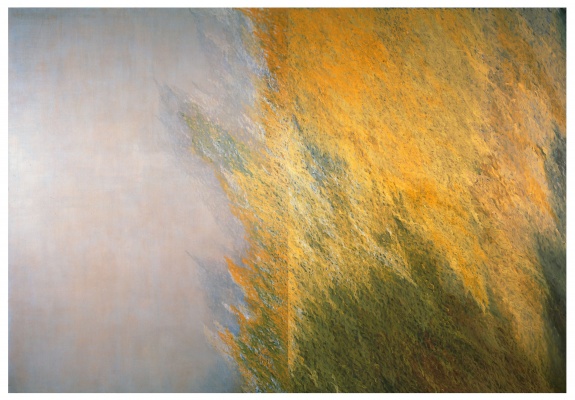Descripción de la Formación
The Institute of Fine Arts, New York University; The Graduate Center, City University of New York; and the Institute for Studies on Latin American Art are pleased to announce the Fourth Annual Symposium of Latin American Art. “Erasures: Excision and Indelibility in the Art of the Americas” will be held in New York on April 11 and 12, 2019. The symposium will include keynote lectures by Barbara Browning and Ken Gonzales-Day.
What can and cannot be erased? This question emerges when monuments are destroyed, cultural artifacts vanish, or the faces of the disappeared continue to interrogate government violence and corruption. Though the recent fire at the Museu Nacional in Rio de Janeiro resulted in the devastating loss of approximately twenty million objects, the impact goes beyond physical destruction. Marina Silva, Brazil’s former Minister of the Environment, went so far as to call the fire a “lobotomy of the Brazilian memory.” Alternatively, this past October Israeli artist Yael Bartana demonstrated the power of the void with her Monumento a la ausencia, in which footprints left in cement attest to lives erased and commemorate the fiftieth anniversary of the Tlatelolco Massacre in Mexico City. Observable in these examples as well as countless others, is that the excision—willful or unwitting—of objects and histories can be both destructive and productive, open and heal wounds, obfuscate and expose memory, and challenge and reinforce the permanence of indelibility.
Tragedies such as those noted above and subsequent actions to confront them shape this year’s symposium theme. Erasure is commonly understood as an obliteration of content or removal of all traces, often forcefully. And yet, as demonstrated by Horacio Zabala’s burned maps from the 1970s or Jacques Bedel’s erased Cordillera (1972), visual art maintains an uncanny ability to demonstrate resilience in the void of visible content. Erasure can manifest through strategies of elimination, cleansing, or effacement as aesthetic practice, or it might instead emerge in issues surrounding medium, as in the ephemerality of sitespecific or performative work. It can likewise be invoked through cartographic, historiographic, or archival omissions, or as a result of natural and man-made disasters or iconoclasm. Yet it is imperative not to neglect erasure’s productive and emancipatory potentials. Through broad and interdisciplinary contributions from a diverse group of scholars, the symposium will promote conversations about the risks, rewards, and knowledge that arise when absence comes into contact with socio-political realities.
Beyond physical and spatial considerations, we must also interrogate history and the void that is left by historical silence, highlighting the unsaid, the unspoken, and the invisible.
Symposium panelists will interrogate the role of erasures in the visual culture of the Americas, provoking discussions that span geographies, temporalities, and disciplines. Possible topics may include:
- Examples of indelible cultural production, both entrenched in and detached from material objects
- Eradication of geographical borders from maps or other records
- Iconoclasm, either as destruction or catharsis
- Museological and institutional approaches to gaps in collections and archives
- Ephemeral materials and the conservation of impermanent objects
- The vulnerability of knowledge and expression enshrined in site- and time-specific, embodied, and non-textual practices
- Silence and pause in text- and sound-based artistic forms
- The refusal to be recorded and the agency of choosing to be forgotten
- The intentional destruction of (one’s own) work as an artistic act
- Elision and dissolution of racialized identities through mestizaje and other discourses
- Intentional or unintentional omission from canons of art history (e.g. art from Latinx, Caribbean, LGBTQI, disabled, or other marginalized communities)

Formación. 11 abr de 2019 - 12 abr de 2019 / Institute of Fine Arts - New York University / Nueva York, New York, Estados Unidos

Premio. 25 mar de 2025 - 08 may de 2025 / Madrid, España

Exposición. 10 abr de 2025 - 12 oct de 2025 / Institut Valencià d’Art Modern (IVAM) / Valencia, España

Formación. 08 may de 2025 - 17 may de 2025 / Museo Nacional Centro de Arte Reina Sofía (MNCARS) / Madrid, España